Environment & Energy
Related: About this forumPhotographing Glacier National Park In The Last Days Of Ice
National Parks have grown up with photography. So it’s only fitting that in the last days of ice in Montana’s Glacier National Park, Lisa McKeon is using a camera to show how quickly climate change has killed off the park’s namesakes. After all, it’s one thing to note that of the park’s 150 glaciers that existed in the late 1800s, only 25 of them remain today. But it’s another to see what that cold, hard fact looks like on the landscape.
For nearly 20 years, McKeon, a U.S. Geological Survey biologist, has prowled dusty archives to find old photos showing the splendor of the park’s glaciers in decades past. Those images have taken her to bushwhacking through the forest and to the highest reaches of the park so she can recreate those images.
Put the old and the new images side-by-side and it’s impossible to ignore the visual evidence of how rapidly climate change has eaten away at the ice. “These photos really resonate with people,” McKeon said. “When we first started taking them years ago, people kept asking for more. That first summer was spent filling media requests.”
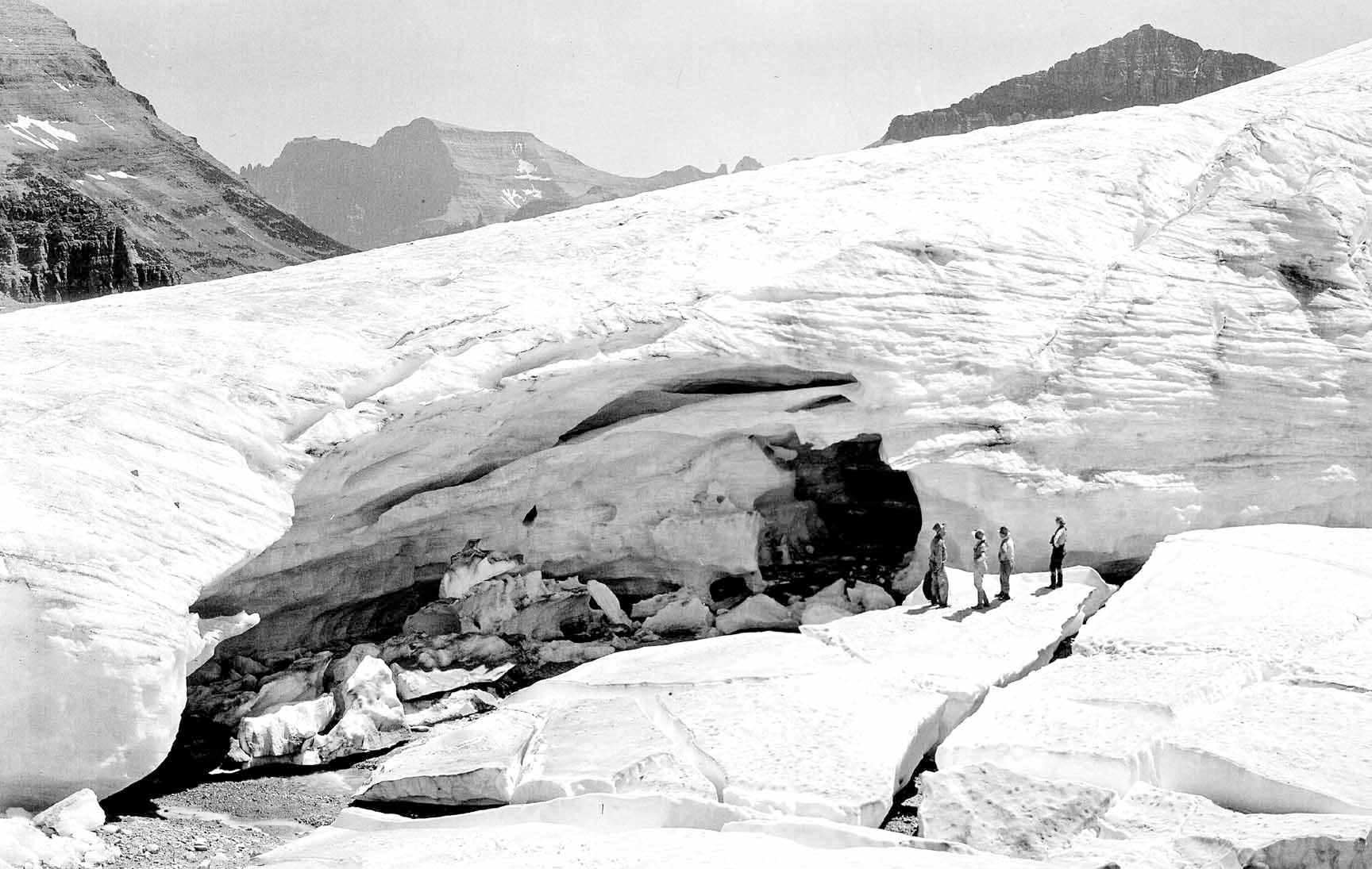
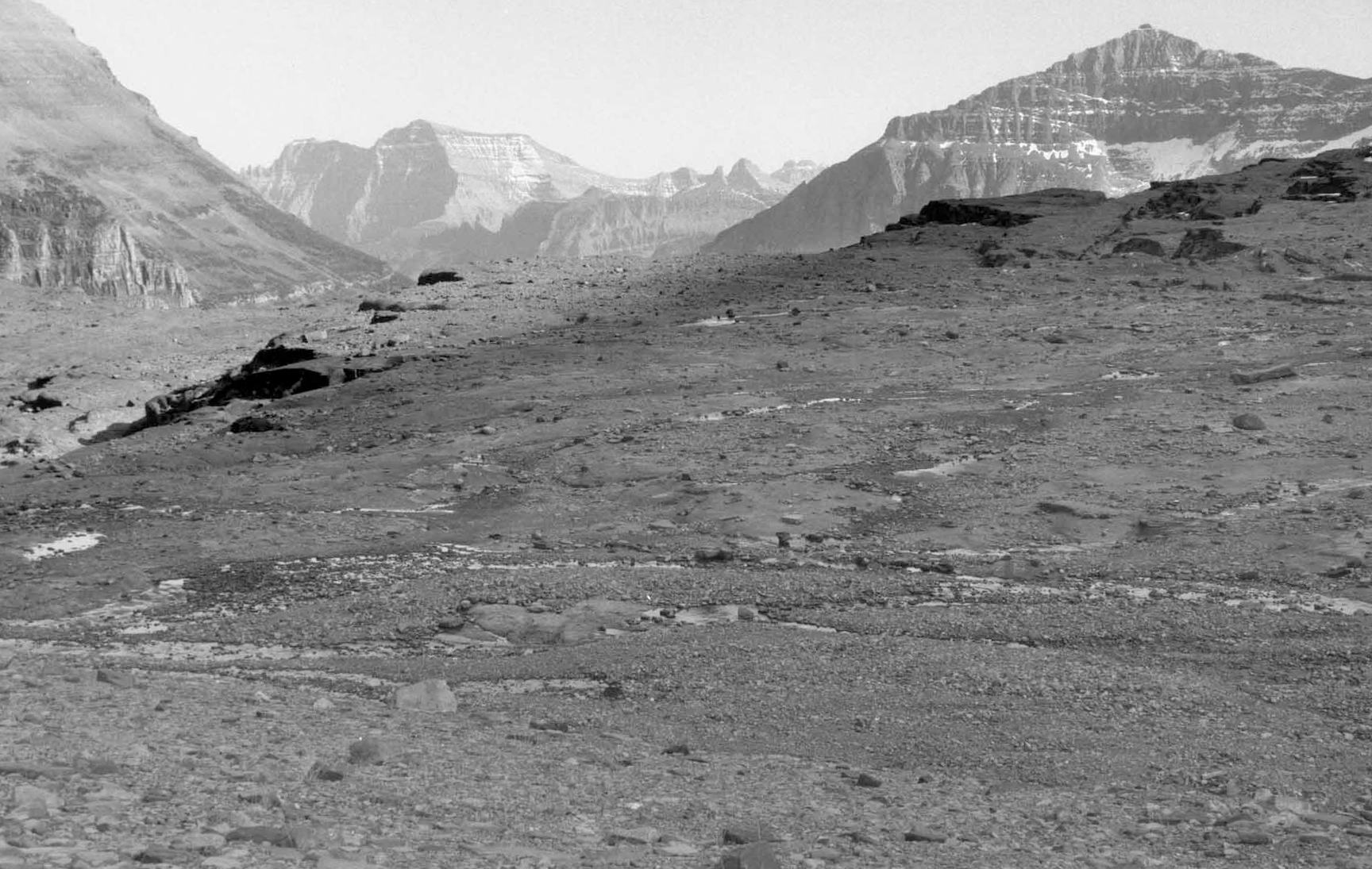
Boulder Glacier with visitors in 1932 and bare land in 1988. The ice has shrunk so much that it's no longer considered an active glacier. Credit: George Grant/Glacier National Park (left). Jerry De Santo/University of Montana image 642.001 (right).
EDIT
Soon all that will be left are images like the ones McKeon is capturing now, which will endure as a searing testament to the changes humans have wrought to one of the most beautiful places on earth.
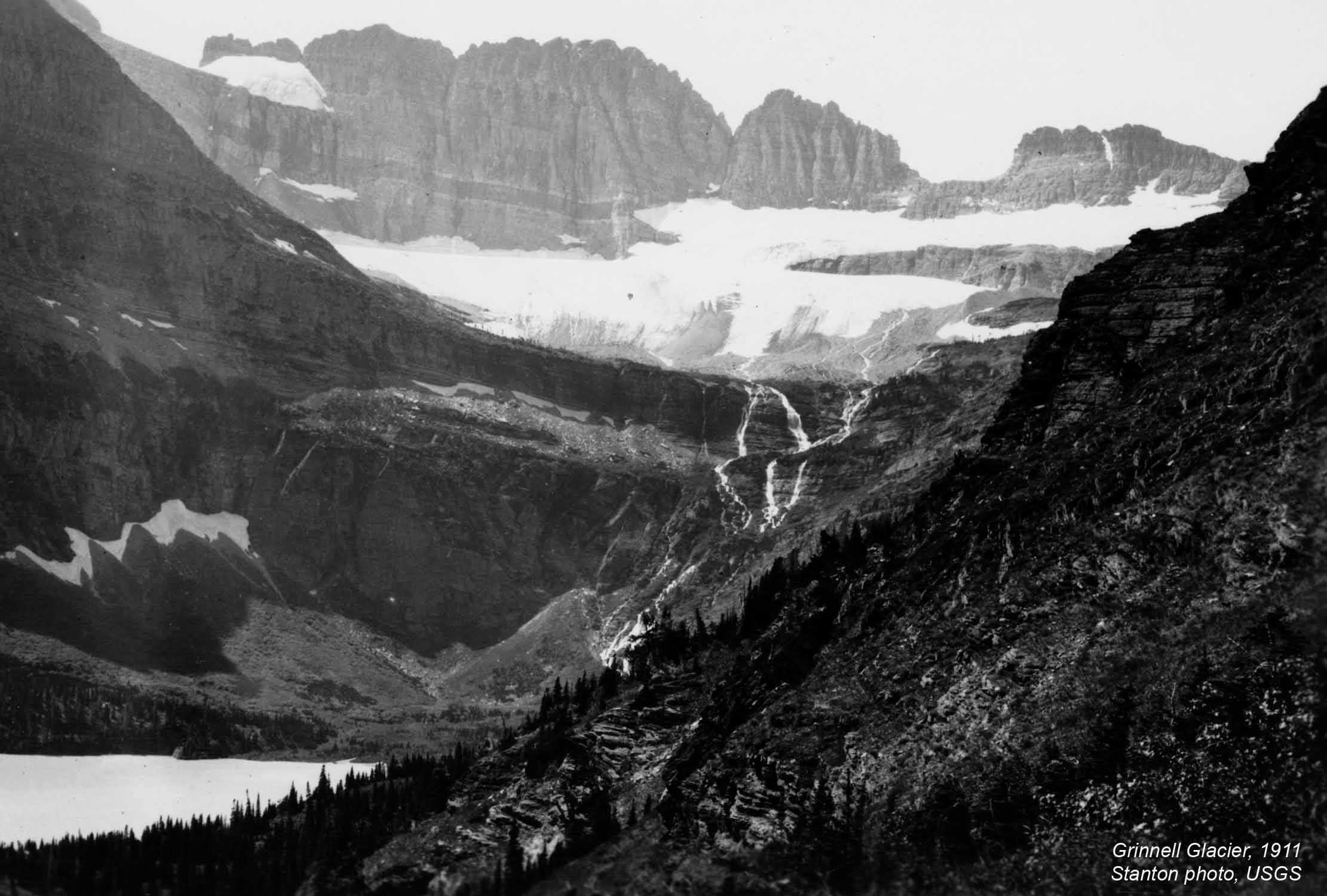
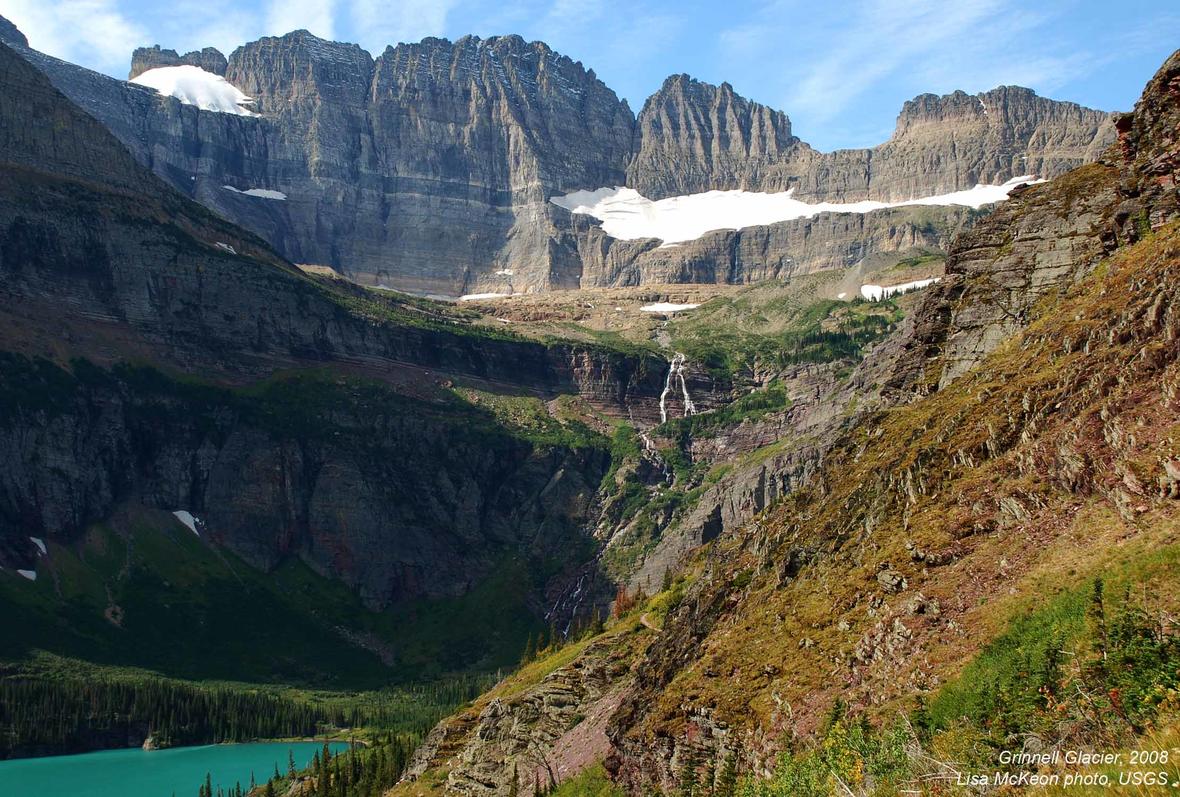
Grinnell Glacier, the park's most iconic piece of ice, photographed in 1911, the year after Glacier National Park was founded, and 2008. Credit: T.W. Stanton/Glacier National Park (left). Lisa McKeon/U.S. Geological Survey (right).
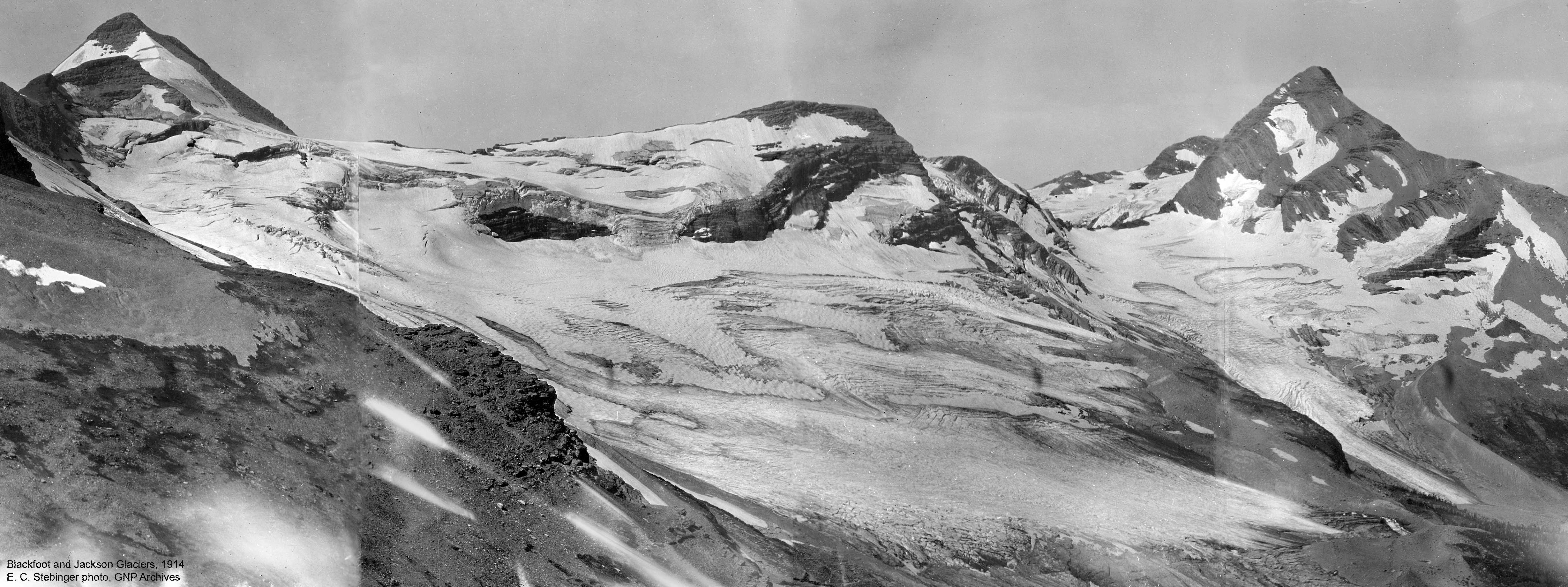
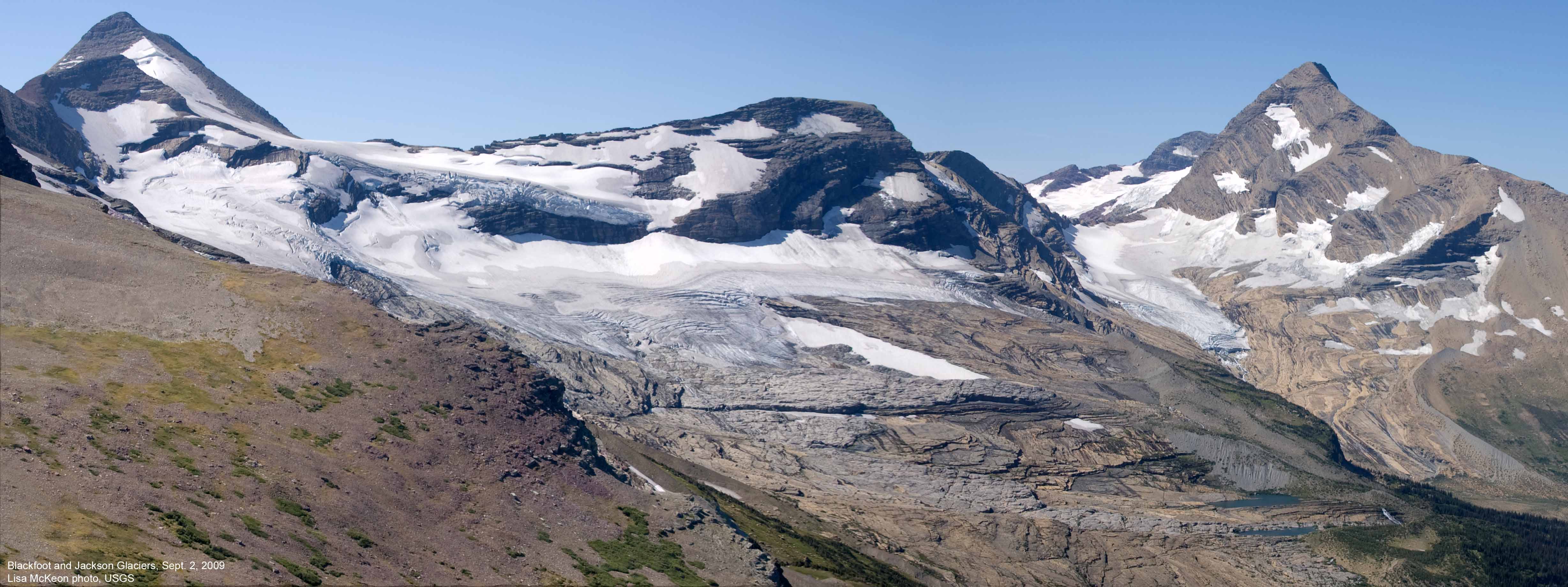
Blackfoot Glacier and Jackson Glacier in 1914 and 2009. They used to be joined as a single glacier but are now split in two because global warming has melted the ice away. Credit: E.C. Stebinger/Glacier National Park (left). Lisa McKeon/U.S. Geological Survey (right).
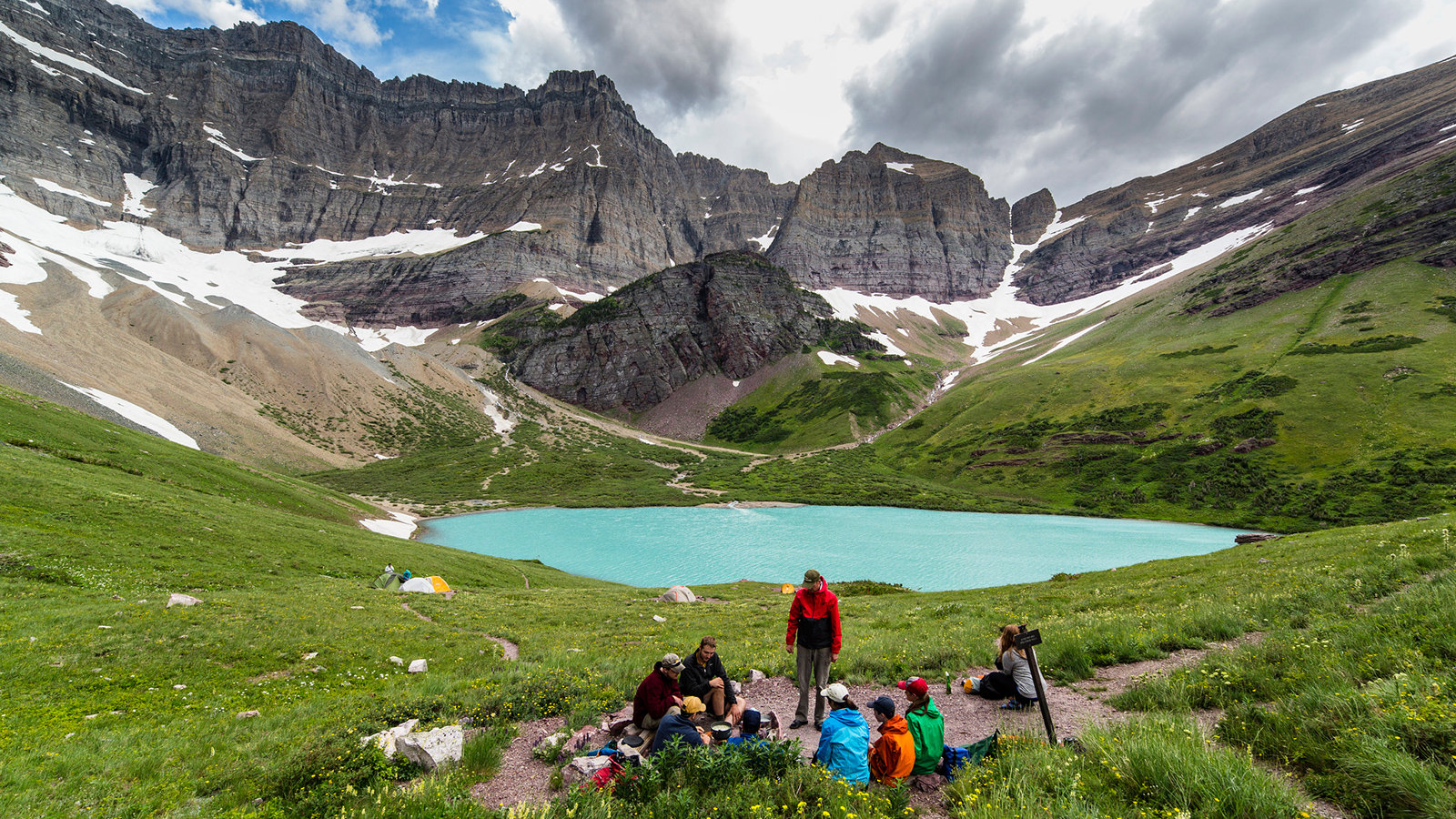
Park visitors eating dinner at Cracker Lake, a glacial-fed lake in Glacier National Park's backcountry. Credit: Jacob Frank/National Park Service
EDIT
http://reports.climatecentral.org/nps/glacier/?utm_content=buffer76f34&utm_medium=social&utm_source=twitter.com&utm_campaign=buffer
sinkingfeeling
(51,444 posts)being able to go up Going to the Sun Highway due to snow and ice. Been back over the years and even I can see the changes.
2naSalit
(86,524 posts)damage to wildlife habitat, especially that of wolverines and Canada Lynx.
DK504
(3,847 posts)Maybe they can open it for fracking now. /s.
I'd like to see people say there's nothing going on up there since the glacier is gone.
Stonepounder
(4,033 posts)Climate change is a hoax pushed by China to take attention from the trade imbalance. But Don the Con has a great plan. A really tremendous plan to pump millions of tons of CO2 and Methane into the atmosphere to fix the balance of trade and pay to build the wall along the US Syria border in order to keep Russian steel from being used in the XL pipeline.
![]()
Pluvious
(4,308 posts)mountain grammy
(26,614 posts)Watching glaciers shrink and disappear. Glaciers that have been there since before humans, taking millions of years to shrink, disappearing within a century.. boggles the mind.
FakeNoose
(32,626 posts)When the snow & ice melt the runoff refills the rivers that keep California and the desert states from going dry.
What will fill the rivers once the ice reserves are gone for good?
There's only so much ground-water and the desert states don't get the rainfall to replenish it.
Maybe we can buy more bottled water from China?
![]()
![]()
![]()
roomtomove
(217 posts)hiking up to and onto Grinnell Glacier in 1959, what a view down the valley! Sad to see it completely gone.
cbreezen
(694 posts)Glacier National Park, are my favorite places to be. Visit while you still can.
Kolesar
(31,182 posts)I wonder why it retreated thirty miles in the next century. That was before we put a significant amount of carbon dioxide into the atmosphere. I read that sometimes glaciers advance when the temperatures are getting warmer.
In any case, that glacier is pretty much gone, having evacuated the bay all the way back to Canada. http://www.glacierbay.org/geography.html